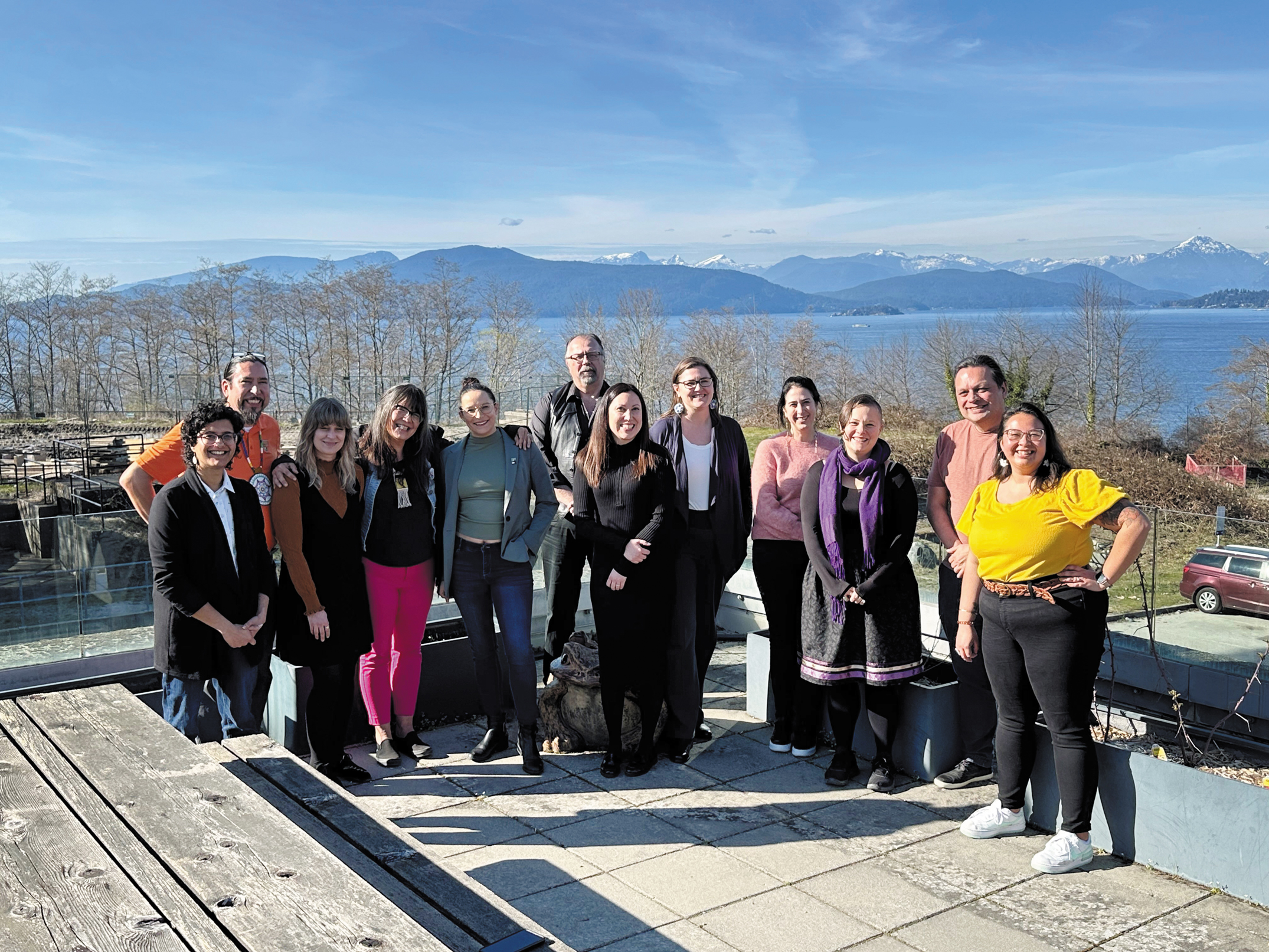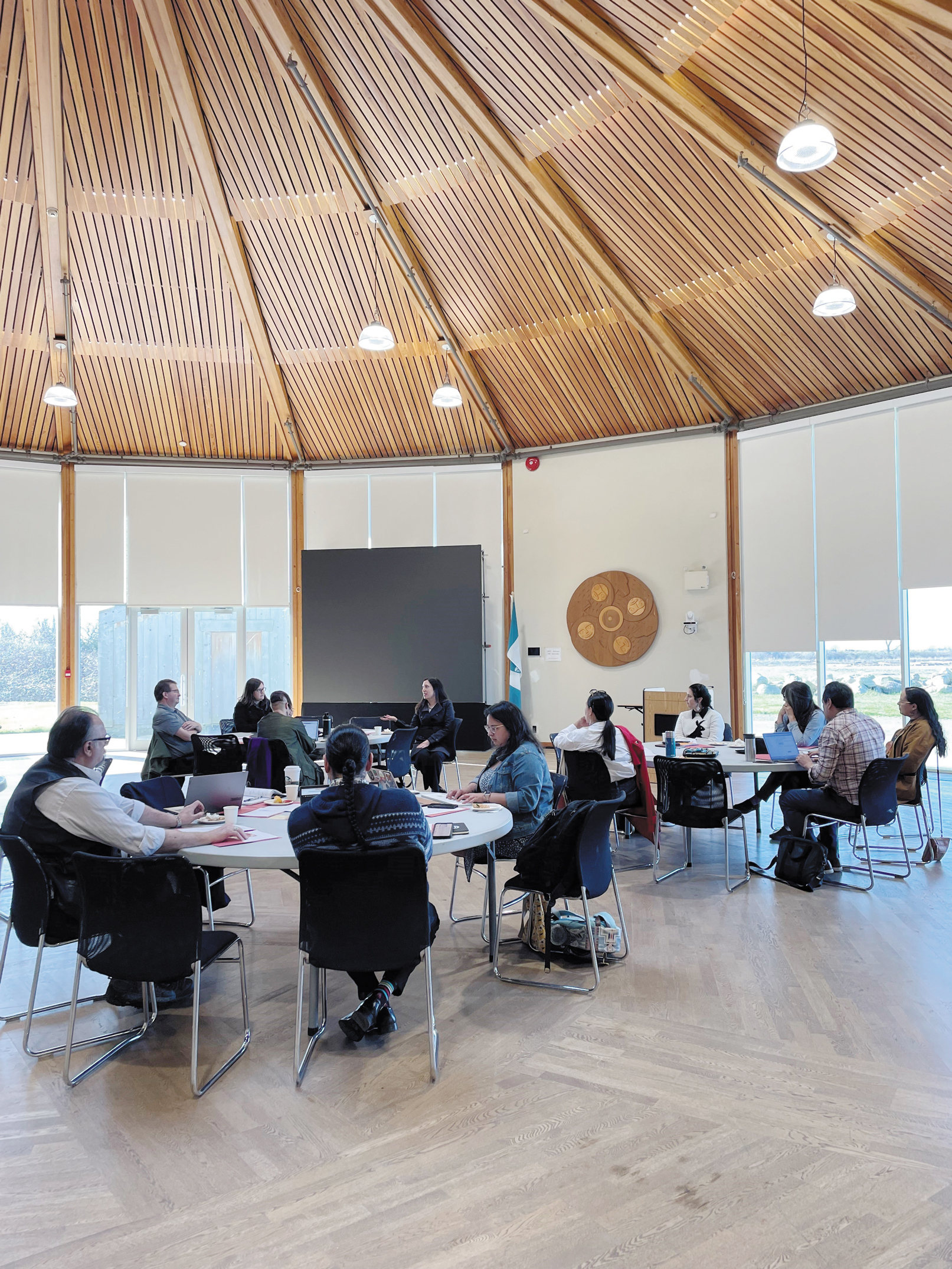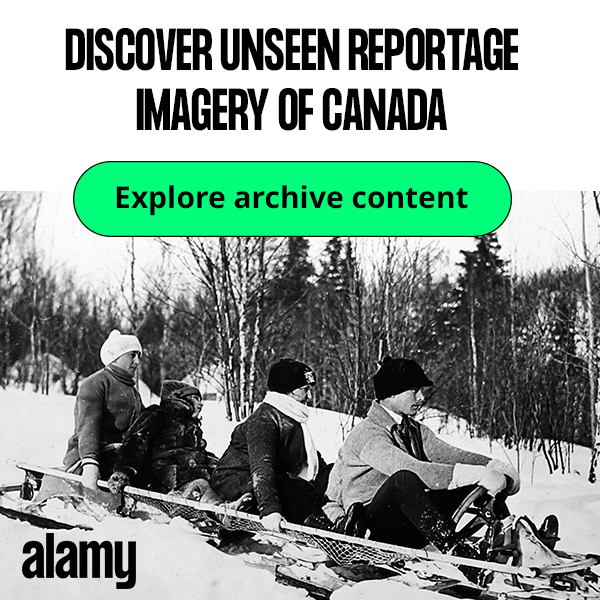Moved to Action Program Update
A Season of (un)Learning
Stephanie Danyluk

Members of the CMA Reconciliation Council, the Indigenous Heritage Circle (IHC), and CMA staff outside of the Museum of Anthropology at UBC. Photo — Stephanie Danyluk.
As we usher in the spring season of growth and renewal under the banner of the Moved to Action program, we continue with our efforts to support the growth of Indigenous-led initiatives, advocacy for repatriation efforts, and Indigenous perspectives in areas of learning and professional development.
Rather than comparing UNDRIP implementation to spring renewal, let's think of it as a long-term rejuvenation. We're moving away from outdated practices and biases in an effort to dismantle foundational systems of oppression. We’re looking to Indigenous communities and organizations to lead the way in building something new and inclusive in its place.
We began 2024 with a series of learning opportunities provided through our eight module Moved to Action webinar series. Throughout the series, we learned from Indigenous experts about ways to practicably implement the Moved to Action report in the areas of Governance, Operations, Repatriation/Rematriation, Engagement and Partnership, as well as Assessment.Over one hundred of our colleagues joined us in this learning exercise, and we were overwhelmed by the enthusiasm to grow support for UNDRIP in your museum spaces. If you missed the course this time around, we will be re-mounting it in the fall to provide another opportunity for Moved to Action professional development.
For many of us, hearing from our special presenters also contributed to significant unlearning of museums’ colonial biases that persist in the sector’s established operational and governance practices. We learned that Indigenous governance must be reciprocal, policy change must be inclusive of non-Christian holidays and diverse community commitments. We also learned how to centre protocol and ceremony in partnerships, why institutions need to do work to prepare for repatriation, as well as the need for nation-based scholarship in museums. Our deepest gratitude goes to all our speakers for sharing their valuable knowledge to better assist our sector in UNDRIP support.
We have been trying to walk the walk too: the Reconciliation Council continues to review and offer guidance to change the governance structures of the CMA. As part of the CMA’s move towards unlearning, the Reconciliation Council’s efforts are done to ensure Indigenous governance is woven throughout our structure and not simply siloed.
Our efforts to support and advocate for repatriation/rematriation brought the Reconciliation Council and CMA staff together with representatives from the Indigenous Heritage Circle and CCUNESCO for a Repatriation Symposium on the ancestral territories of the xʷməθkʷəy̓əm (Musqueam), Sḵwx̱wú7mesh (Squamish), and səlilwətaɬ (Tsleil-Waututh) Nations. Together, we discussed and considered options to move a national framework on repatriation/rematriation.

Members of the CMA Reconciliation Council, the Indigenous Heritage Circle (IHC), and CMA staff at Musqueam Nation Cultural Centre on day one of the Repatriation Symposium on March 18, 2024. Photo — Stephanie Danyluk.
We heard this framework must maintain nation sovereignty over cultural heritage rights. This means it must encompass repatriation/rematriation within a more expansive definition of Indigenous cultural heritage that includes ties to land, language, spirituality, and ceremony. We will continue to support the Indigenous Heritage Circle as they lead this work to develop a national framework on Indigenous cultural heritage moving ahead.
As the CMA Reconciliation Council often reminds us, we must confront uncomfortable truths in order to properly grow as a museum sector. We must unlearn as a sector and relearn from Indigenous communities and organizations like the Indigenous Heritage Circle, ensuring they have the time, space and resources they deserve to guide this process.
Yes, spring is a time of growth and renewal. But we are talking about real issues here and not simply re-using tired metaphors. Let’s focus on what we need to unlearn and relearn to make sure we are making space for rebuilding.
Stephanie Danyluk is the Senior Manager, Community Engagement with the CMA, supporting the work to respond to TRC #67 and promote Indigenous self-determination in museum and heritage space.
